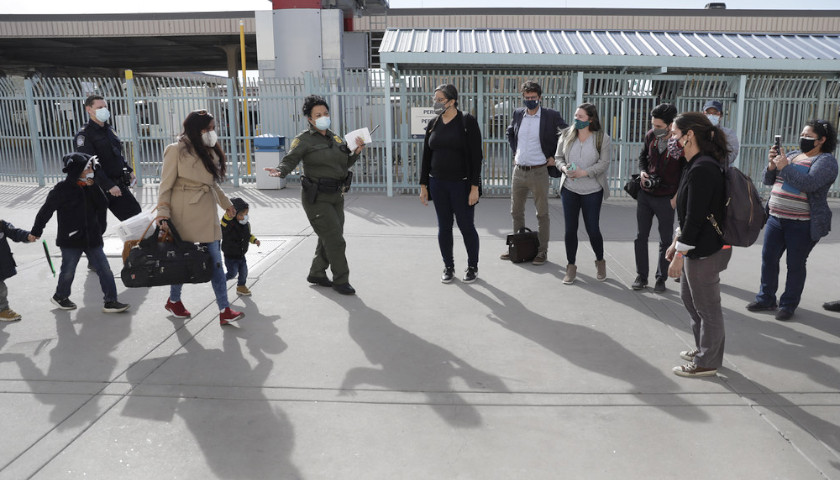by Jennie Taer
The Department of Homeland Security (DHS) will make it easier for certain illegal migrants benefiting from certain welfare programs to stay in the country beginning Dec. 23.
The “Public Charge” rule, which applies to noncitizens “likely at any time to become a public charge,” will no longer consider certain nutrition, health and housing benefits for inadmissibility, according to DHS. Noncitizens who are considered a “public charge” face potential inadmissibility and denial of Green Card status.
A federal court vacated changes made by the Trump administration in 2019 to the rule in March 2021. The Trump administration expanded the rule to include food stamps, Medicaid, cash assistance, Section 8 housing or other government-funded benefits to be considered when determining who is a public charge.
 “We are excited and welcome to see the new rule from the Biden administration updating the barbaric weaponizing of public charge used by the former administration. This allows our borders to remain open to a large portion of the world where immigrants struggle and seek the American dream,” American Immigration Lawyers Association Immediate Past President Allen Orr told the Daily Caller News Foundation.
“We are excited and welcome to see the new rule from the Biden administration updating the barbaric weaponizing of public charge used by the former administration. This allows our borders to remain open to a large portion of the world where immigrants struggle and seek the American dream,” American Immigration Lawyers Association Immediate Past President Allen Orr told the Daily Caller News Foundation.
The benefits that will be permitted include Supplemental Nutrition Assistance Program (SNAP), Children’s Health Insurance Program (CHIP), Medicaid, housing benefits and benefits related to immunizations or testing for communicable diseases.
“Consistent with America’s bedrock values, we will not penalize individuals for choosing to access the health benefits and other supplemental government services available to them,” DHS Secretary Alejandro Mayorkas said in a statement Thursday.
NEWS: DHS has published a fair and humane public charge rule. This final rule provides clarity and consistency for noncitizens on how DHS will administer the public charge ground of inadmissibility.
NEWS: DHS has published a fair and humane public charge rule. This final rule provides clarity and consistency for noncitizens on how DHS will administer the public charge ground of inadmissibility.
Read more: https://t.co/irUVJK3ql6 pic.twitter.com/7beYIEB0hN
— Homeland Security (@DHSgov) September 8, 2022
Noncitizens who don’t apply for public benefits, but whose family members accept benefits won’t be considered public charges, according to DHS.
“Today’s final rule is a relief for all foreign nationals residing in the US,” Immigration attorney Jonathan Grode told the DCNF. “The Trump administration created a tremendous amount of uncertainty and concern that changes to public charge rules would make actions legal actions ‘today’ cause the denial of an immigration benefit in the future.”
The rule has rarely been used for deportations. Between fiscal year 2015 and fiscal year 2019, Immigration and Customs Enforcement (ICE) deported 123 people considered to be public charges out of the 1,225,130 deportations during the time period, according to Syracuse University’s Transactional Records Access Clearinghouse (TRAC).
“With this restoration of the previous public charge protocols, predictability has returned. While you can debate whether the rule as constructed is fair, at least we know what is and what is not permissible,” Grode said.
– – –
Jennie Taer is a reporter at Daily Caller News Foundation.





